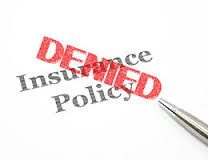Fuse Panel
Buying a house with a fuse panel? Here is what you should know.
Many older homes still have fuse panels serving part of the home. Often, the main panel has been upgraded with a newer circuit breaker box but certain components or parts of the home are served by a fuse panel. Homeowners may allow a part of the home to remain on an old fuse box to save money in avoiding re-wiring that section of the home. Are fuses safe? The answer is yes. A fuse will only handle the amount of amperage it is rated for and any surge in amperage will break the metal strip causing a loss of power. The fuse cannot be reset and must be replaced. Compare this to a modern circuit breaker which will allow a certain amount of overcurrent to pass through for a certain period of time before it shuts down. The circuit breaker can then be reset. The main problem with fuses and fuse panels relate to their age. Typically, they are connected to aged wiring and often, cloth sheathed wiring. Also, the typical panel is only rated for 60 amps. A typical 60 amp panel may include one 240V circuit for an oven/range or possibly an air conditioner/furnace plus four more fuses for the remainder of the home. New homes today require many more circuits and the typical new home is wired for 200 amps. The panel shown in the photo would not even handle the modern kitchen alone.People are also known to install larger fuses than the wire size/capacity allows or to double-tap the circuit and these conditions may create a fire hazard. Assuming your paneldoes not have these conditions, there is still one major problem with fuse panels: 
MOST INSURANCE CARRIERS WILL NOT INSURE THESE PANELS
Before you make an offer on the home or spend money having the home inspected, talk to your insurance agent. You may then want to get an estimate from an electrician to replace the system.